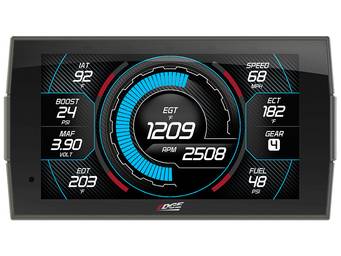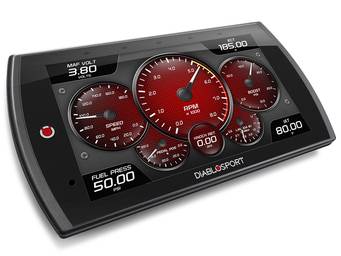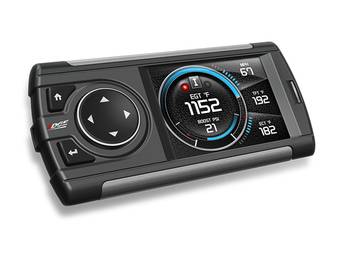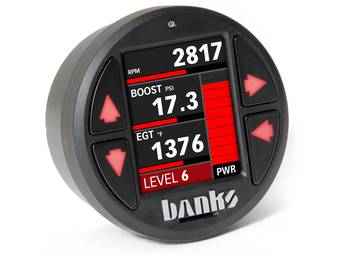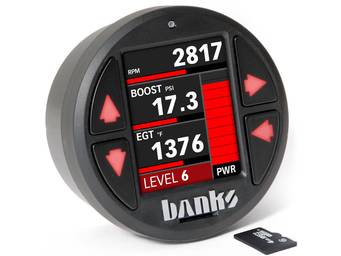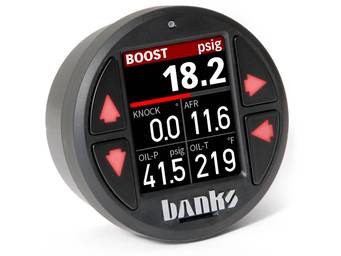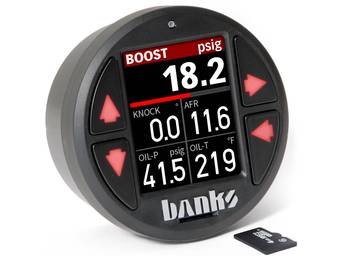Select Your Vehicle
Car & Truck Engine Performance Monitors
Only display items that ship the quickest
Shop our extensive selection of engine performance monitors for cars, trucks, Jeeps, and SUVs! Our engine monitors allow you to keep an eye on essential engine parameters in real time, ensuring the safety and health of your vehicle’s powertrain.
What Can Engine Performance Monitors Track?
Engine performance monitors can track various engine parameters in real time. Depending on the application, these may include:
RPM: Revolutions per minute, or engine speed. This value tracks the speed of your vehicle’s crankshaft to prevent damage to rods, bearings, and the valvetrain.
Oil Pressure: A pertinent value to monitor engine health, considering the amount of metal-on-metal contact in an engine. All metal-on-metal connections are cushioned and lubricated by a thin layer of oil to reduce friction, thus prolonging engine life. With poor pressure comes poor lubrication and, thus, internal damage.
Fuel Pressure: Fuel is one of the three components necessary for combustion, alongside ignition and air. Without the proper fuel pressure, your engine will run lean or not at all!
Temperatures: Essential temperatures to monitor include oil and coolant; if these values get too high, it could be a sign of an internal engine issue. Too high temperatures may also lead to overheating, which degrades fluids, warps engine blocks and cylinder heads, and worse!
Battery readouts: The average vehicle requires 12 volts of juice to start and approximately 13-14 volts from the alternator to charge the battery while operating. If these values are too low, you likely have an issue with your vehicle’s charging system.
Speed: How fast are you going? While this value isn’t necessary on most newer vehicles, a monitor that can display overall speed is worthwhile on older, custom builds.
Boost Pressure: Monitor the boost pressure of a forced induction engine. Too much boost can damage the engine. Too little, and you likely have an issue with the compressor or a boost leak.
Why Should I Install an Engine Performance Monitor?
Engine monitors allow you to keep an eye on several important parameters, aiding in the diagnosis of drivetrain issues, pinpointing issues and weak spots, and ensuring efficient operation. Additionally, performance monitors often feature DTC (diagnostic trouble code) reading, data logging, and more!
